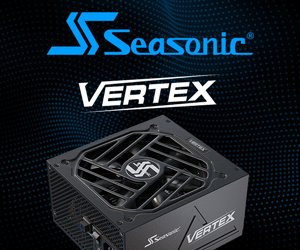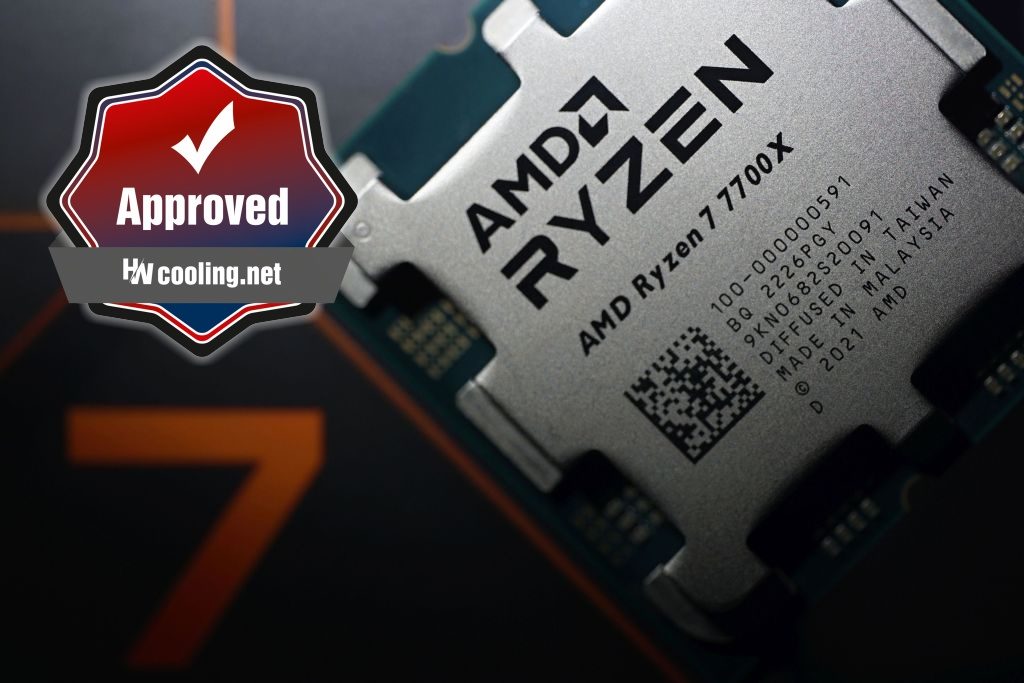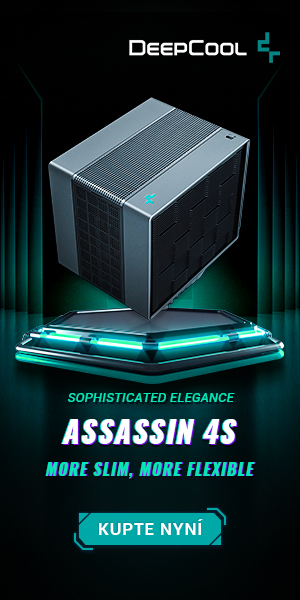Conclusion
It clearly outperformed its predecessors (including the R7 5800X) and also the Core i9-10900K, which has two more cores. But it can’t compare with the Core i7-13700K in heavy MT workloads, and that’s just a month after its release. In ST loads, however, it’s even performance-wise, as in games, where Ryzen 7 is more efficient. Whether the R7 7700X is worth more than the Ci7-13700K for similar money, however, you’ll have to judge for yourself.
Conclusion
The octa-core Ryzen 7 7700X compared to the Core i7-13700K is reminiscent of the Ryzen 5 7600X and Core i5-13600K. Here, too, there is an abysmal difference in multi-threaded performance, where AMD’s processor lags behind Intel’s. It’s a bit different in some ways though, and the R7 7700X will have a harder life next to the Ci7-13700K than the R5 7600X will next to the Ci5-13600K. In the Ryzen 5/Core i5 class, multi-threaded performance carries less weight than Ryzen 7 or Core i7 processors, which are priced higher precisely because the R5 7600(X)’s six cores aren’t enough and higher raw performance is required.
And the Ryzen 7 7700X isn’t faster compared to the Core i7-13700K, even in a gaming PC anymore, as is the case with Ryzen 7 7600X, which narrowly beats the Ci5-13600K. The Ci7-13700K presents the Ryzen 7 7700X with a sometimes more than evenly matched opponent. When evaluating “gaming” performance, it should be noted that the Ryzen 7 7700X is slightly behind its cheaper sibling, the R5 7600X. This is due to the slightly (100–150 MHz) lower frequencies, which matter more than the fact that the R7 7700X has two more cores. Power draw in games is higher with the Ryzen 7 (running those extra cores costs something…) by about 20%, resulting in worse performance per watt.However, it is still better on the Ryzen 7 7700X compared to the Core i7-13700K. At comparable performance in games, the AMD processor is more efficient.
Ryzen 7 7700X is more power-efficient than the competing Core i7, and significantly so, even under computing load, when all cores are fully loaded. And substantially so, in Cinebench we measured a difference of 110 W (of course, in conditions where we don’t limit either processor’s power draw by TDP). The R7 7700X’s power draw here is 58% of that of the Core i7-13700K, computing performance then 66%. Based on this, the R7 7700X is more power-efficient, but it’s at a completely different performance.
Intel’s Core i7 outperforms AMD’s processor by two classes here, and the Core i5-13600K is also 18% more powerful than the R7 7700X. The “efficient” E cores in Raptor Lake processors do a lot of good work that Ryzen 7 can’t keep up with. But heads up, that’s only in a workload that wrings the most out of all the available cores. In games, as discussed above, the performance results are very evenly matched and more advantageous in terms of efficiency is the Ryzen 7 (7700X) compared to the Core i7 (13700K).
The R7 7700X processor, due to high clock speeds in single-core boost delivers peak performance in single-threaded workloads, but the Core i7-13700K is at least equal in this discipline. At similar or rather a hair higher performance, the Intel processor is the more efficient of the pair. The differences are very small anyway, and using a board with a more aggressive or less aggressive power supply can change the rankings, but it can certainly be concluded that the single-threaded performance is exceptionally close across these processors (R7 7700X and Ci7-13700K) with almost the same efficiency. Even the temperatures are similar, with the Ryzen 7 we measured only 2 °C higher (67.1 °C), but it should be noted that this is already quite close to the limit (70 °C), from which the achieved single-core boost value starts to decrease dynamically.
There’s also little difference in temperatures in gaming load (at 90W, the TIM bottleneck doesn’t show up significantly yet). For Ryzen 7 7700X, even a mid-range cooler will be enough to cool it, but that’s no longer the case when all cores are running at high performance, typically during 3D rendering or during video encoding. There, R7 7700X temperatures already soar to 95°C even with powerful coolers and Although the AMD processor has almost half the power draw of the Core i7 (13700K), it heats up about 10 °C more. With a TDP that matches the PPT values, the R7 7700X no longer manages to efficiently transfer waste heat to the cooler.
The Ryzen 7 7700X has a similar temperature to the Ryzen 9 7900X, for example, while drawing significantly less power. That’s because everything happens within a single chiplet, which is even under higher load, as the R7 7700X is 100MHz faster (than the Ryzen 9 7900X) in all-core boost. It’s a bit of a Ryzen 7 5800X situation, whose cooling “difficulties” were later solved by the lower-power R7 5700X with more conservative clock speeds. But the latter came out (after the R7 5800X) significantly later than the now R7 7700 (without X) with 40 % lower PPT (88W).
The Ryzen 7 7700X isn’t a bad processor, but whichever way you look at it, for similar money it’s a less versatile (considering that vastly inferior multi-threaded performance) and overall inferior choice to the Ci7-13700K.
English translation and edit by Jozef Dudáš
| AMD Ryzen 7 7700X |
| + High multi-threaded performance |
| + ... with higher efficiency than the Intel Core i7-13700K |
| + Top-notch gaming performance ... |
| + ... and also top-notch single-threaded performance |
| + Very high performance per clock (IPC) |
| + Modern 5 nm manufacturing process |
| + Extremely high clock speeds given the new manufacturing process |
| + DisplayPort 2.0 support |
| - Worse heat dissipation from a small chip (more complicated cooling)... |
| - ... even with relatively low power draw, it requires a very powerful cooler for quieter operation |
| - Weaker price/multi-threaded performance ratio. It loses very significantly to the Core i7-13700K in this respect |
| Approximate retail price: 399 EUR |
We would like to thank Datacomp e-shop for their cooperation in providing the tested hardware
Special thanks also to Blackmagic Design (for DaVinci Resolve Studio license), Topaz Labs (for licenses to DeNoise AI, Gigapixel AI and Sharpen AI) and Zoner (for Photo Studio X license)
- Contents
- AMD Ryzen 7 7700X in detail
- Methodology: performance tests
- Methodology: how we measure power draw
- Methodology: temperature and clock speed tests
- Test setup
- 3DMark
- Assassin’s Creed: Valhalla
- Borderlands 3
- Counter-Strike: GO
- Cyberpunk 2077
- DOOM Eternal
- F1 2020
- Metro Exodus
- Microsoft Flight Simulator
- Shadow of the Tomb Raider
- Total War Saga: Troy
- Overall gaming performance
- Gaming performance per euro
- PCMark and Geekbench
- Web performance
- 3D rendering: Cinebench, Blender, ...
- Video 1/2: Adobe Premiere Pro
- Video 2/2: DaVinci Resolve Studio
- Graphics effects: Adobe After Effects
- Video encoding
- Audio encoding
- Broadcasting (OBS and Xsplit)
- Fotky 1/2: Adobe Photoshop and Lightroom
- Photos 2/2: Affinity Photo, Topaz Labs AI Apps, ZPS X, ...
- (De)compression
- (De)encryption
- Numerical computing
- Simulations
- Memory and cache tests
- Processor power draw curve
- Average processor power draw
- Performance per watt
- Achieved CPU clock speed
- CPU temperature
- Conclusion










